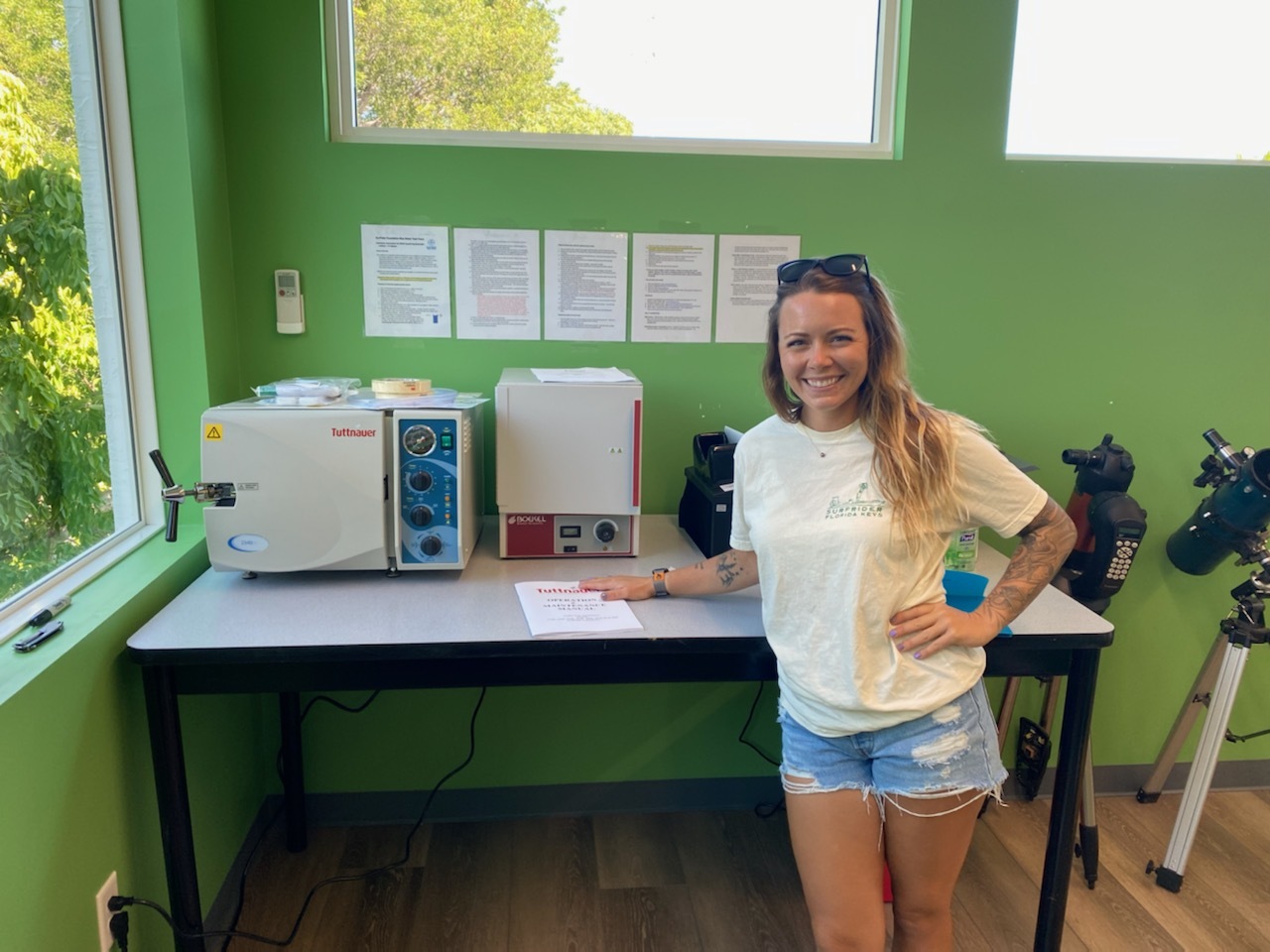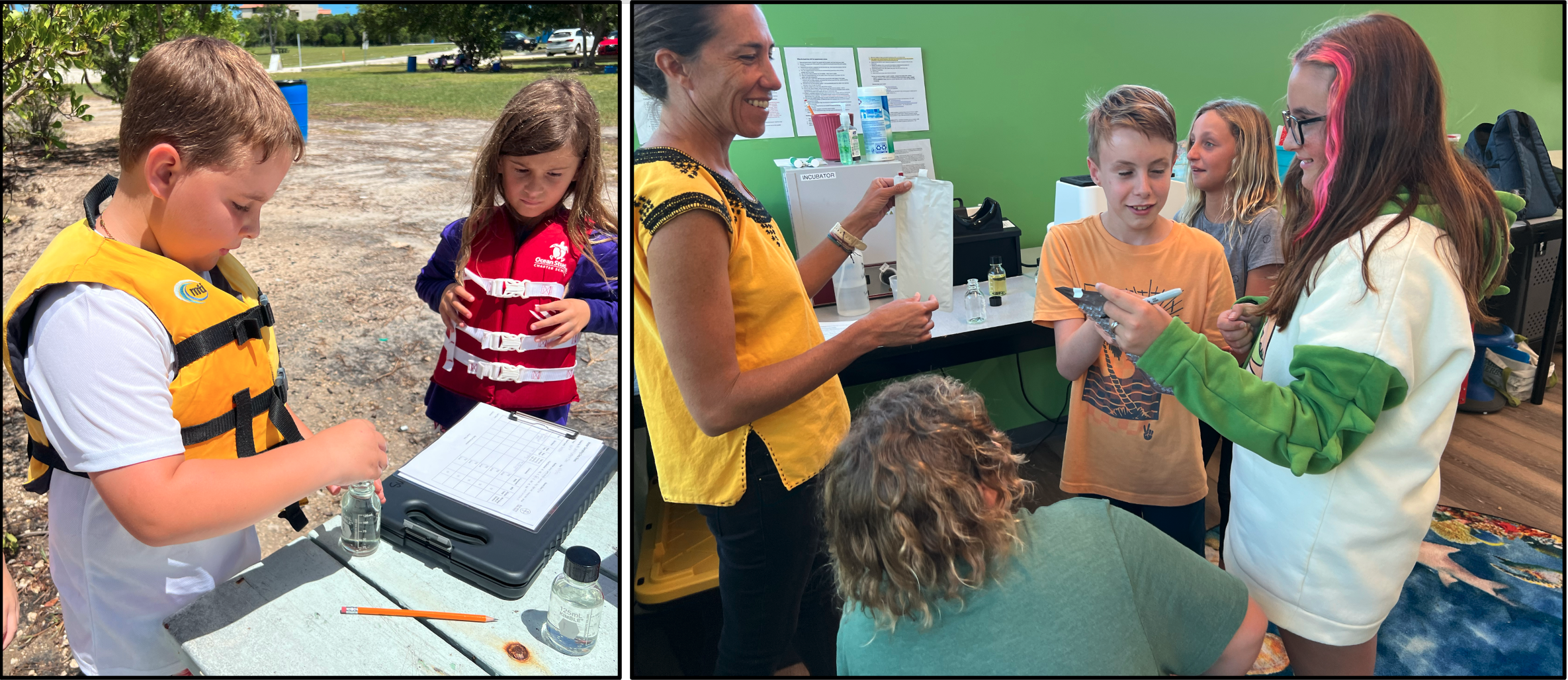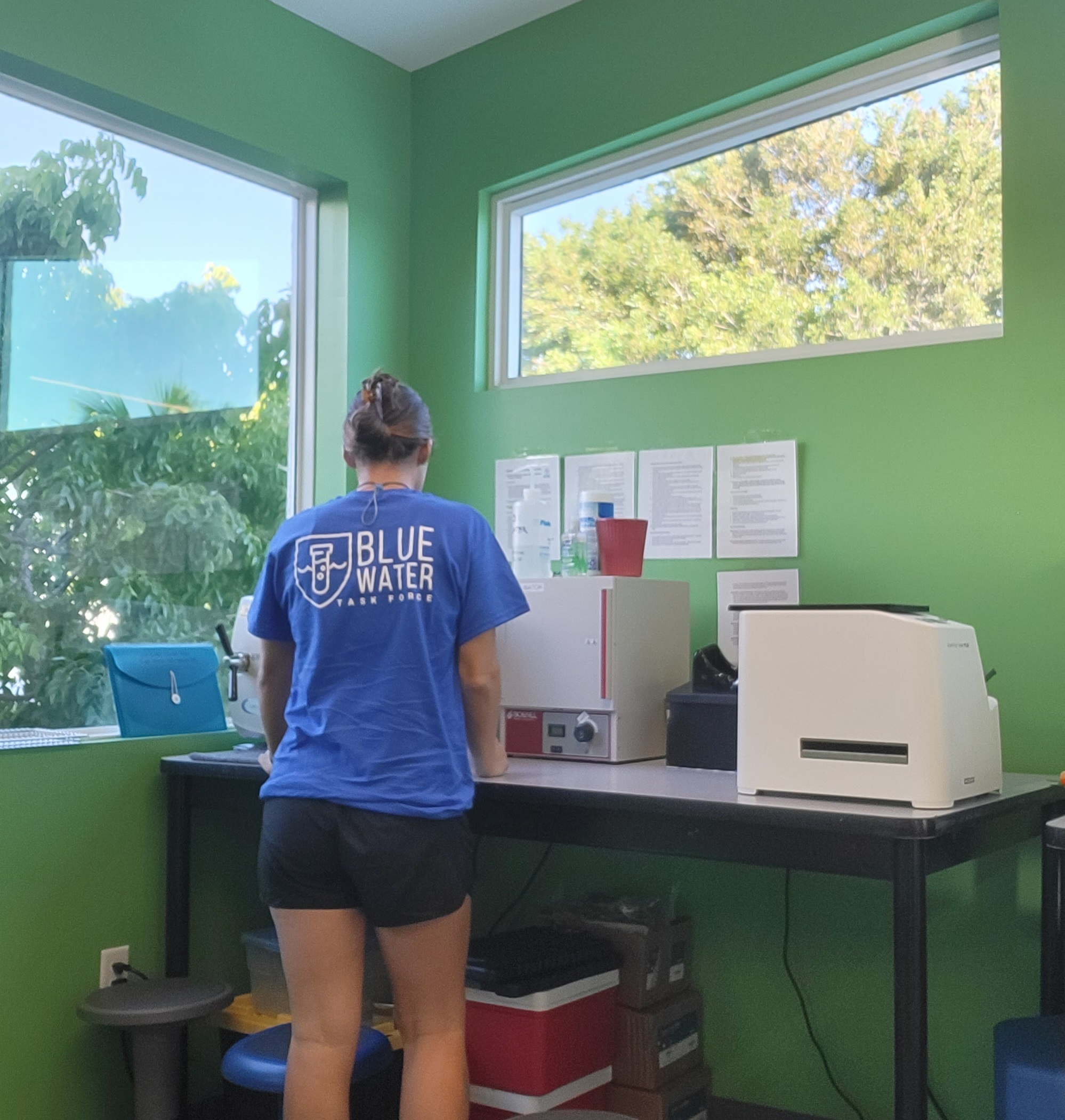
 Pictured left to right: Emily (Surfrider FK BWTF Coordinator), Martha (Marine Science Lead at OSCS), Whitney (Surfrider FK Board Chair), and Katie (Surfrider FK Secretary).
Pictured left to right: Emily (Surfrider FK BWTF Coordinator), Martha (Marine Science Lead at OSCS), Whitney (Surfrider FK Board Chair), and Katie (Surfrider FK Secretary).
By partnering with a local school, the Florida Keys Surfrider Foundation Chapter has launched one of our newest Blue Water Task Force programs to fill in the gaps of their state beach monitoring program. Not only does this program provide critical information to help protect safe recreation, but also supports the local tourism-based economy, which depends on clean water and a healthy vibrant marine ecosystem.
The turquoise waters of the Florida Keys are home to a vibrant array of corals, seagrass beds, and tropical and subtropical fish that have been protected as a part of Florida Keys National Marine Sanctuary (NMS) since 1990. The beauty of these areas spur a thriving tourism and recreation economy in Monroe County. It is estimated that over 5 million people visit the Florida Keys NMS annually for recreation. In fact, tourism and recreation represent the most important economic sectors to the local economy, contributing nearly $4.4 billion annually and supporting 54% of all jobs in Monroe County. Despite NMS protections and the importance of the recreation industry, the crystal clear waters of the Florida Keys still face water pollution issues, which can impact public health as well as tourism industries. Stormwater runoff and wastewater infrastructure failures (i.e. sewage spills) are the biggest sources of pollution at the beach in Florida, and across the country. In fact, pollution at recreational beaches costs the U.S. economy more than $2.2 billion and results in 20,000 health advisories annually.
The Florida Department of Health in Monroe County currently monitors over 10 beaches across the Keys for fecal indicator bacteria every 2 weeks. Due to federal funding constraints, the County cannot cover every public beach, and must spread out its monitoring schedule, despite people recreating in waterways during off weeks of testing. In an effort to augment the County’s beach water quality monitoring program, the Florida Keys Chapter has officially launched a Blue Water Task Force (BWTF) program that will help inform the community on where it is safe to surf, swim, and play at the beach.

Katie, FL Keys Chapter secretary, standing in the newly set up BWTF lab at Ocean Studies Charter School.
The Florida Keys Chapter has partnered with Ocean Studies Charter School, located in the heart of Key Largo, to operate their BWTF program. On August 31st, the FL Keys BWTF kicked off their first sampling beta-run at Rowell’s Waterfront Park in Key Largo, and processed the sample in their all-glass BWTF lab at Ocean Studies Charter School. Since then, the chapter has trained Ocean Studies students and teachers on BWTF field sampling and laboratory protocols, which has prepared students to participate in sample collection and processing. Participating in BWTF will teach students about local water quality concerns and allow students to directly contribute to protecting the beaches that they play in. The program currently covers four sampling sites monthly, with one sampling site in Key Largo, and the other three sampling sites located in Islamorada. The chapter plans to build their program and recruit more volunteers to cover additional sites in the future.

Students from Ocean Studies Charter School collecting field data for water quality samples (left) and later processing those samples in the lab (right).
The FL Keys Chapter is excited to bring the Blue Water Task Force to their county, and take an active role in water quality monitoring. The FL Keys BWTF is proud to be doing their part to help ensure that people who enjoy these protected waters will have the information they need to not get sick at the beach. By establishing a year-round data record for sites not tested by Monroe County, the FL Keys BWTF can also help identify any new and emerging water quality concerns that might arise at these sites, and help inform solutions to protect clean water at these prized beach locations. To get involved locally, reach out to Emily Becker, FL Keys BWTF Coordinator, at bwtf1@floridakeys.surfrider.org.
To keep up with the FL Keys BWTF testing sites and results, visit the BWTF online map.

